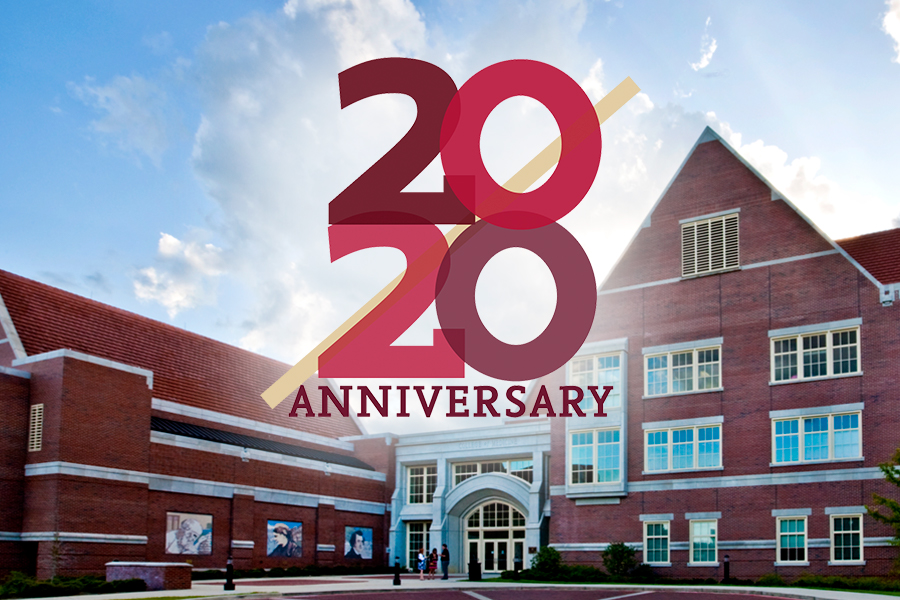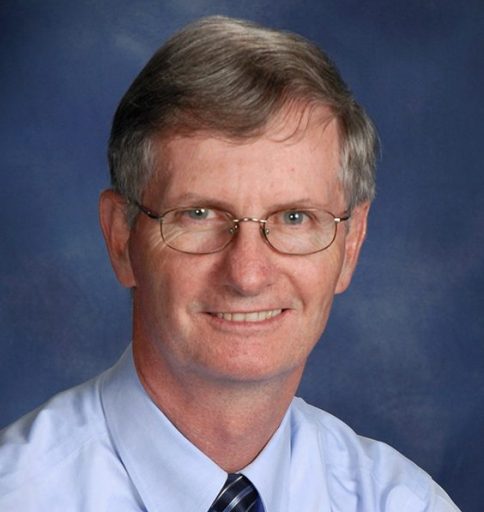
It has been two decades since the Florida State University College of Medicine was established.
The college will commemorate its 20th anniversary with a virtual ceremony Friday, Nov. 6. The event will recognize Myra Hurt, who served as the college’s acting dean when it opened, and the college’s Hall of Fame Class of 2020. The event also will serve as a virtual reunion for alumni.
“The College of Medicine has developed tremendously in the 20 years since its founding,” said Dean John P. Fogarty. “It’s remarkable to look at its legacy — the many practicing health-care providers and successful research projects that have come from the school — and see how far it has come as an institution.”
The Florida Legislature created the College of Medicine in 2000, and the university welcomed its inaugural class of 30 students in 2001. Since then, the college has graduated more than 1,500 physicians, physician assistants and doctoral students who are helping improve patient health across Florida and the nation.

Although this is the 20th anniversary of the college, the institution can trace its origins to the Program in Medical Sciences (PIMS), which enrolled its first students in 1970. PIMS was an expansion of the University of Florida College of Medicine that saw students complete their first year of medical school at FSU then transfer to UF to complete their medical education. Faculty from Florida A&M University, which was a partner in the program, initially taught pharmacology classes.
PIMS was funded by a National Institutes of Health grant and was designed to meet the need for more physicians in rural Northwest Florida. The College of Medicine’s goal today is the same as the mission of PIMS: to develop physicians who practice patient-centered health care, advance knowledge and are responsive to community needs, especially through service to elder, rural, minority and underserved populations.
Helping those communities has been a focus of the college since the Florida Legislature codified its mission 20 years ago.
The legislation establishing the medical school required the college to create a program to ensure training in the medical needs of the elderly and to develop a Department of Family Medicine with significant rural training. It also required the college to continue outreach efforts in order to develop the ranks of physicians from underserved communities.
FSU President John Thrasher, who was speaker of the Florida House of Representatives when the law creating the medical school passed, strongly believed in the university’s unique ability to provide exemplary education and patient-centered training.
“FSU believes that students with a desire to serve their communities will make the best doctors,” Thrasher said. “The FSU College of Medicine took a new approach to how people are admitted to medical school and how they are trained. We now have 20 years of evidence that our approach works — that it makes a difference in people’s lives.”
The commitment to reaching underserved populations is exemplified by the college’s decentralized approach to clinical training. Students perform their rotations at regional campuses around the state. The college started with regional campuses in Orlando, Pensacola and Tallahassee. Today, there are also facilities in Sarasota, Daytona Beach and Fort Pierce, as well as rural clinical-training sites in Immokalee, Marianna and Thomasville, Georgia.
“Giving our students the opportunity to practice what they’re learning in a community setting is an important part of their education,” Fogarty said. “Students get personalized experience with a practicing physician, and the mentorship and experience they receive is invaluable.”
One person who knows the medical school’s story well is Dr. Christie Alexander.
Alexander was a member of the first class to graduate from the newly created medical school. Today, she is a family physician in Tallahassee at FSU PrimaryHealth, president of the Florida Academy of Family Physicians and an associate professor in the college’s Department of Family Medicine and Rural Health.
“Ever since I was a little girl, I knew I wanted to be a doctor,” Alexander said. “Being in the first class of the College of Medicine not only fulfilled that dream but also opened the doors to so many other opportunities. Little did I know that years later, I would be the first graduate to return as full-time faculty at the college. It’s exciting to be able to pay it forward to future physicians at the very medical school that gave me so much.”
There are more stories like Alexander’s from the college’s 20-year history — and more to come.
“It is a privilege for our faculty to help teach the physicians of the future and to see them grow in their careers,” Fogarty said. “It’s a mission we love. One day, they may take care of our health, and it is comforting to know we’ll be in good hands.”
The ceremony recognizing the college’s 20-year anniversary will take place at 7 p.m. Friday, Nov. 6. Links to watch will be available at: https://med.fsu.edu/VirtualEvents.




